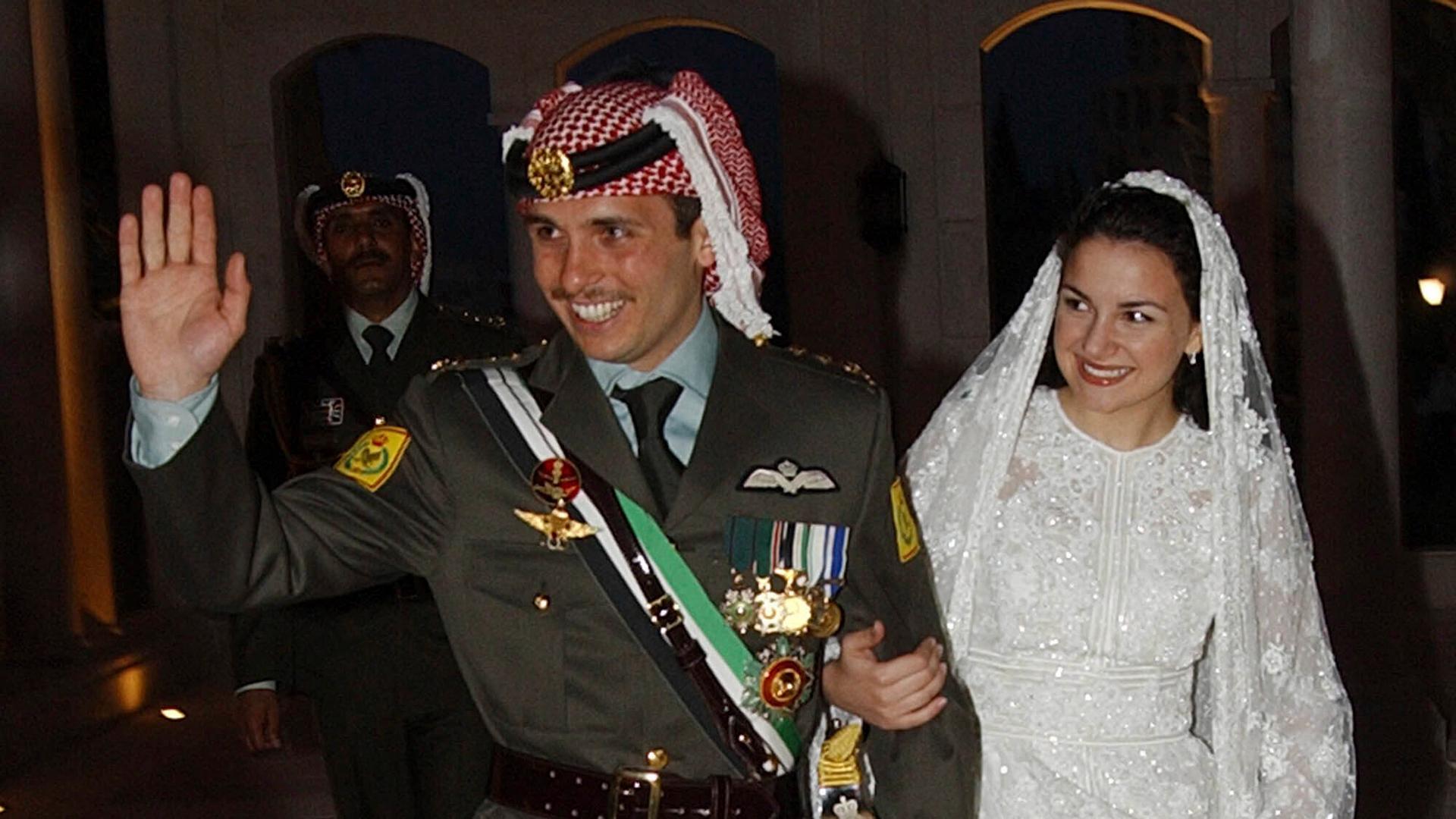In the past several days, Jordan has seen something unusual — a dispute within its royal family that has spilled into the public.
On Sunday, Jordanian authorities said they had foiled a “malicious plot” by former Crown Prince Hamzah bin Hussein to destabilize the kingdom of King Abdullah II, Jordan’s current ruler.
“The kingdom’s stability and security transcend everything,” said Ayman Safadi, Jordan’s foreign minister and deputy prime minister. “The plot is totally contained.”
But on Monday, Prince Hamzah said in an audio recording that he will not follow orders to remain in his palace in Amman, and denied any attempt at a coup plot. Several individuals have been arrested, as well, including Bassem Awadallah, a former Cabinet minister and head of the royal court and Sharif Hassan bin Zaid, a member of the royal family.
For many Jordanians, the royal family dispute comes at a difficult time as the country faces tough economic conditions.
From his home in Amman, the capital, Kamal, 37, has been following the news about the dispute on social media, where he gets most of his news. With a tightly controlled state media, Kamal said he fears speaking publicly about the royal family, and asked The World to use his first name only.
While international media covered the dispute heavily, “state TV had a documentary about the benefits of honey extracted from bees,” Kamal said with a laugh.
“As Jordanians, in general, we do support our king. … We do believe that there is no other solution outside the royal family.”
“As Jordanians, in general, we do support our king,” he said. “We do believe that there is no other solution outside the royal family.”
But Kamal added that the government needs to address the country’s dire economic situation.
Related: Aid blame game leaves Syrian refugees stranded in desert ‘death’ camp
A protracted economic crisis
Jordan’s economy has been hit hard in recent years.
“Jordan is a country whose foreign debt had reached $40 billion or 95% of the country’s GDP [gross domestic product].”
“Jordan is a country whose foreign debt had reached $40 billion or 95% of the country’s GDP [gross domestic product],” said Dalia Fahmy, who teaches political science at Long Island University.
Fahmy explained that the increase was due to several factors — a decrease in tourism and foreign investment, an increase in military spending, the current pandemic, mismanagement and the decadelong refugee crisis.
Related: Jordan includes refugees in its COVID-19 vaccination rollout
To offset the financial trouble, the government took out an International Monetary Fund loan, Fahmy said, which was conditional on austerity measures.
“Once you put austerity measures on a hurting population in an ailing economy, it hurts the most vulnerable of the population,” she said.
And people are feeling the pain, Kamal said, in Amman. He has two young daughters, a 1-year-old and a 5-year-old. He said he pays taxes on baby formula. Prices of basic goods like cooking oil are way up, he said, and it’s the same with electricity.
“At the same time, we are now using online education for our kids. So, what happens if you’re not able to pay your bills?” he asked.
A popular prince among tribes
Prince Hamzah formerly held the title of crown prince. But in 2004, the king stripped him of that position and anointed his own son the crown prince.
Hamzah is popular among various tribes in Jordan, according to analysts. He has been taking part in meetings with tribal leaders in the past few months, where — allegedly — people criticized government policies.
Specifically, economic policies.
“The current king, when he came into power, he really focused on economic reform and not on political reforms. So, for the former crown prince to critique his brother on economic mismanagement is really targeting what the king has been touting for himself,” Fahmy said.
Related: Israeli plans for annexation weigh heavily on Jordan Valley residents
Yet, as bad as the tensions in Jordan seem, Fahmy doesn’t think any major political changes are imminent.
“The continuation of the king is not what is in jeopardy here. … It’s really internal popularity, internal dissent and whether the king will be able to accommodate this by some set of reforms.”
“The continuation of the king is not what is in jeopardy here,” she said. “It’s really internal popularity, internal dissent and whether the king will be able to accommodate this by some set of reforms.”
Meanwhile, Washington is watching all of this very closely.
Jordan is an important ally for the US in the region.
The US has military bases and some 3,000 troops there.
On Saturday, Ned Price, spokesman for the US State Department, said that King Abdullah has the full support of the United States.
Our coverage reaches millions each week, but only a small fraction of listeners contribute to sustain our program. We still need 224 more people to donate $100 or $10/monthly to unlock our $67,000 match. Will you help us get there today?
